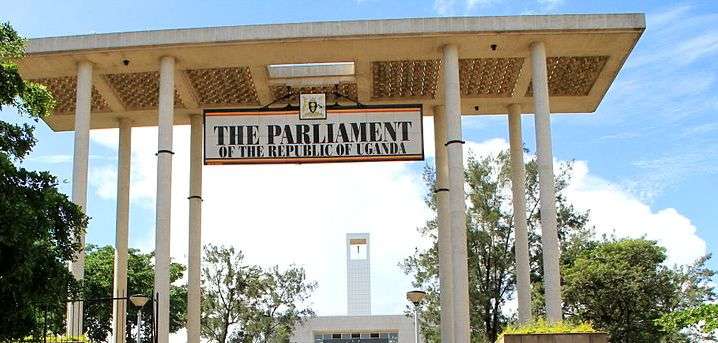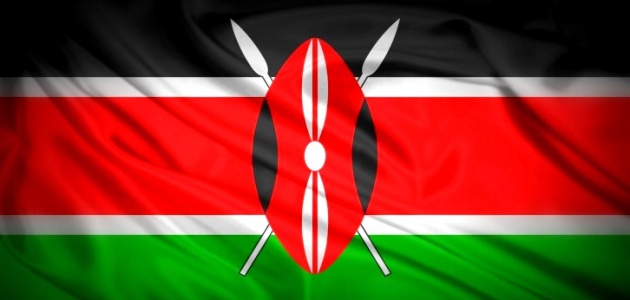By Evelyn Lirri |
The story of a 19-year-old student from Kenya who committed suicide after a man she met through Facebook threatened to publish her nude photos came to the limelight on the heels of the opening day of the Forum on Internet Freedom in East Africa, which took place in Kampala, Uganda.
The forum, organised by the Collaboration on International ICT Policy for East and Southern Africa (CIPESA), under the OpenNet Africa Initiative, drew a cross-section of people from Africa and beyond, including human rights defenders, academics, , law enforcement officers, communication regulators, media, and the tech community to debate issues impacting online freedom of expression and cyber security in Africa. The emerging issue of online violence against women (VAW), a growing problem worldwide, was among the key topics discussed.
Panelists at the Forum said cyber violence against women exists in several forms, including stalking, sexual harassment, surveillance, revenge pornography, public shaming and use of images or videos to manipulate individuals. It is particularly carried out through email, social media such as Facebook, Twitter and mobile phone instant messaging platforms like WhatsApp.
Ruth Nsibirano, a gender expert from Makerere University, said it is difficult to quantify the extent of cyber VAW in Africa because of several inhibitions including the culture of silence.
“In many cases when women report this kind of violence, they are blamed for causing it and so they end up keeping quiet instead of speaking out,” explained Dr. Nsibirano. She added that many women were reluctant to report their tormentors because of the fear of reprisal and, in other cases, they did not know where to seek redress.
According to Jan Moolman, a feminist activist with the Association for Progressive Communications (APC) who was on the panel that discussed gender-based online violence, women’s access to the internet and technology remains low, especially in developing countries, leaving the conversation on internet rights to be dominated by men. She noted that in some African countries, online VAW was targeted at public figures, largely because of the nature of their work.
“We need policies and legislation by governments to say this kind of behaviour online is unacceptable. Just like we are responding to violence against women offline, we need to do the same online,” said Ms. Moolman.
Despite the ongoing reports of harassment and intimidation, Ms. Moolman urged more women and girls to join online spaces in order to be part of the conversation against the vice and how to ensure they are safe when they use different online platforms.
Nanjira Sambuli, a research manager with iHub Kenya, said cases of violence against women are usually difficult to prosecute because the evidence is hard to present.
“The cases that come to the limelight are likely a representative of what we don’t hear or see. We need to work towards frameworks that allow people to report anonymously. That way, we shall have a better sense of what is happening,” she said.
Ms. Sambuli highlighted the fact that efforts to combat violence against women have thus far been mainly offline, with fewer strategies put in place to document the harm that happens online and ensure women know where to seek help when they have been violated.
“The internet especially social media platforms are spaces where people are beginning to negotiate and understand what it means to have freedom and what the boundaries are. The internet should be a space where citizens can engage, learn and build a better society,” she added.
Among the possible efforts to curb the vice, Dr. Nsibirano called for increased education of women on the dynamics of the internet through school curriculums. “That way, we shall get more women who will be knowledgeable when these crimes happen,” she said.
Many countries across Africa do not have specific laws under which offenders can be prosecuted. In Uganda, some offenders have been charged under the Anti Pornography Act, 2014, but participants noted that this law was not sufficient to address the problem given that the same law could be used to prosecute the victims.
“Digital evidence is an area that the world is still trying to figure out,” noted Ms. Sambuli. She stressed the need for laws not to aggravate the infringement of victims’ privacy during investigations and prosecution of VAW crimes.
Analysis of ICT in Governance Policies and Practice in Uganda
In our research series this month, we review government and non-government ICT initiatives in Uganda. We examine how ICT-related policies and other legislation affect citizen participation, democratic governance and influence the link between ICT and public services delivery.
The report is based on policy analysis, stakeholder interviews and literature review, and aims to inform awareness raising initiatives and advocacy for more progressive policies and practices regarding the use of ICT in governance and civic participation in Uganda.
Read the full report
Hunting Down Social Media ‘Abusers’ in Uganda as Elections Near
By CIPESA Staff |
As Uganda draws closer to the February 2016 presidential elections, the fever of anxiety in government corridors is rising. Over the years, election periods have seen a crackdown on social media, voices critical of the ruling party, and independent media in the guise of promoting public order and unity as well as preventing the spread of false information. This, however, has sparked debate on the fine line between preserving national cohesion and hampering free speech.
See our full analysis of Hunting Down Social Media ‘Abusers’ in Uganda as Elections Near in our Policy Briefing Series
Access to Information in Tanzania: Laws, Policies and Practice
By Lillian Nalwoga |
Despite the absence of a Right to Information law in Tanzania, advancements in the adoption of Information and Communication technology (ICT) in the country are enabling wider information availability in the public domain.
However, several impediments still stand in the way of citizens’ enjoyment of the right to information as guaranteed by the Constitution.
According to a new report by the Collaboration on International ICT Policy in East and Southern Africa (CIPESA), provisions under various laws and regulations, some as old as 40 years, have been used to restrict access to information.
“ Every person – (a) Has a freedom of opinion and expression of his ideas; (b) Has a right to seek, receive and/or disseminate information regardless of national boundaries; (c) Has the freedom to communicate and a freedom with protection from interference from his communication; and (d) has a right to be informed at all times of various important events of life and activities of the people and also of issues of importance to the society” Article 18 of the Constitution of the United Republic of Tanzania of 1977.
There has been slow progress in drafting an access to information law, with the process stalling since 2006, when the first Freedom of Information Bill was introduced by government. The absence of this law has made it cumbersome for those seeking information from public bodies.
The country is currently undergoing a Constitutional review process, with Articles 29 and 30 of the draft Constitution containing more elaborate and explicit provisions on freedom of expression, freedom of information and media freedom.
Although the proposed Constitution has been commended by civil society as a positive step towards promoting access to information in Tanzania, other existing laws such as The Newspapers Act, 1976, The National Security Act, 1970, The Public Service Act, 2002 and The Public Leadership Code of Ethics Act, 1995, would undermine these freedoms.
The Newspaper Act in particular has been used by law enforcement agencies against independent media and journalists. The Mwanahalisi newspaper was in July 2012 banned indefinitely under Section 25 of the Act, while Mwananchi was suspended for 90 days in September 2013.
Nonetheless, the government has in recent years made various attempts to make more public sector information available and to allow citizens to file queries, opinions, and complaints and provide feedback to public bodies. Notable efforts include the Open government data portal, Tanzania Government Portal, the central government portal, e-Government portal, the publication of reports by the National Audit Office and the Tanzania Extractive Industry Transparency Initiative (TEITI).
However, the CIPESA report notes that the information provided through these efforts is not regularly updated, is often in non-reusable formats and may not necessarily meet the needs of the public in terms of language or nature of information released.
On the positive side, some results can be pointed towards these government efforts in fostering improved government openness and accountability. The move by the Controller and Auditor General (CAG) to release its financial audit reports sparked public debate online and in Parliament over the mismanagement of funds, leading to the resignation and demotion of some public leaders in December 2014.
Meanwhile, civil society advocacy efforts to advance access to information are also on the rise. Initiatives such as that launched by the Media Institute of Southern Africa (MISA) Tanzania in 2010 to assess the most transparent and most secretive government institutions in the country have led to government recognition and acknowledgment of the need for increased transparency.
In addition, the Coalition on the Right to Information (CORI) consisting of 11 member organisations is working towards campaigns and awareness workshops to influence the government to enact the Freedom to Information law.
With a teledensity of 68 phone connections per 100 inhabitants and internet usage estimated at 9.3 million users, more Tanzanians are starting to realise the opportunities ICT offers in promoting transparency and good governance.
The research report recommends the use of a combinations of ICT, such as radio, print media, bulk SMS and automated calls in addition to public notice boards and community meetings to advance access to information in Tanzania.
Other recommendations towards improving freedom of expression, media freedom and access to information include the enactment of the Access to information legislation, amending or repealing outdated laws such as The Newspapers Act of 1976, the Public Leadership Code of Ethics (Declaration of Interests, Assets and Liabilities) Regulations, and the National Security Act of 1970.
There is also the need to safeguard the rights and privacy of internet users through the enactment of cyber laws, including the adoption of a data protection and privacy law.
Further, the report recommends that all government Ministries, Departments and Agencies should make use of available ICT platforms including portals and social media to release more information into the public domain while awareness on use of ICT among citizens to access or seek public information should be promoted by all stakeholders.
Read the full CIPESA study on The Right to Information in Tanzania: Insights on the Laws, Policies and Practices
Is Kenya Putting the Chill on Internet Freedoms?
By Juliet Nanfuka |
The rights of Kenya’s digital citizens are fast shrinking in the face of new restrictive laws and increased arraignment of individuals for expressing online opinions which authorities deem in breach of the law.
The Security Laws (Amendment) Act 2014, assented to by President Uhuru Kenyatta last December, allows blanket admissibility in court of electronic messages and digital material regardless of whether it is not in its original form.
It is feared that retrogressive provisions in this law could be used to put the chill on internet freedoms in East Africa’s most connected country where mobile phone penetration stands at 80% and internet access at 50% of the population.
Part V of the new security law regarding “special operations” has raised particular concerns, as it expands the surveillance capabilities of the Kenyan intelligence and law enforcement agencies without sufficient procedural safeguards.
It gives broad powers to the Director General of the National Intelligence Service to authorise any officer of the Service to monitor communications, “obtain any information, material, record, document or thing” and “to take all necessary action, within the law, to preserve national security.”
In addition, the amendments also contain unclear procedural safeguards especially in the interception of communications by “National Security Organs” for the purposes of detecting or disrupting acts of terrorism.
Even though there is a provision for a warrant to be issued by a court of law, the broad definition of ‘national security’ leaves no room for restrictions on the extent of power the law grants to National Intelligence Service when it comes to accessing personal data, information and communications.
In February 2015, the Kenya High Court struck some clauses from the security law. The government says it may appeal.
Government says the new law is necessary to fight al Shabaab militants who have repeatedly rocked the country with fatal attacks such as the Westgate shopping centre attack on September 21, 2013, which left 67 people dead. Human rights activists blame President Kenyatta’s government for steadily shrinking the space for civil actors, a pattern they say was manifested in the Kenya Information and Communications (Amendment) Act 2013 and the Media Council Act 2013. These laws, they say, placed restrictions on media freedom and general freedom of expression.
The proposed Cybercrime and Computer related Crimes Bill (2014) also falls short of constitutional guarantees as it is contains “broad” speech offences with potentially chilling effects on free speech. See a full legal analysis of the Bill by Article 19. Proposed regulations to the law governing non-government organisations, which cap the funds received from foreigners at 15% of their overall budgets, have also been criticised as aimed to curtail and control the activities of civic groups engaged in governance and human rights work.
Over the 2012-2013 election period, several individuals were charged in court over their online communications. The National Cohesion and Integration Act of 2008 has been used to charge many for promoting hate speech – which some Kenyan citizens found justifiable given the role that hate speech played in the 2007 to 2008 post-election violence.
Hate Speech is defined by the 2008 Act as speech that is “threatening, abusive or insulting or involves the use of threatening, abusive or insulting words” with the intention to stir up ethnic hatred or a likelihood that ethnic hatred will be stirred up. Authorities, however, seem to be shifting gear and using this charge among others against online journalists and bloggers that criticise the Kenyatta government.
In December 2014, blogger Robert Alai was arrested and charged with undermining the authority of a public officer contrary to Section 132 of the Penal Code by allegedly calling President Kenyatta an “adolescent president” in a blog. He was again arrested in February 2015 for offending a businessman online by linking him to a land saga that involved the illegal acquisition of the Langata Primary School playground.
Meanwhile, Allan Wadi – a student – was also arrested for “hate speech” and jailed in January 2015 for posting negative comments on Facebook about the president. In the same month, journalist Abraham Mutai was arrested following tweets he posted on corruption in the Isiolo County Government. He was charged with the “misuse of a licensed communication platform to cause anxiety.”
Nancy Mbindalah, an intern with the department of finance at the Embu County Government, was charged on similar grounds for social media posts dating as far back as 2013 in which she is alleged to have abused County Governor Martin Wambora.
at the Embu County Government, was charged on similar grounds for social media posts dating as far back as 2013 in which she is alleged to have abused County Governor Martin Wambora.
In all instances, some social media users claimed there were “selective” arrests and prosecution of those critical of government. Critics cited the case of Moses Kuria, a Member of Parliament (MP) for Gatundu South, who allegedly made remarks on Facebook against the Luo Community but did not face the same punitive actions.
A recent news report, however, indicates that the National Cohesion and Reconciliation Commission and the Public Prosecutor are calling for the MP’s case to be revisited for the “incitement to violence, hate speech and fanning ethnic hatred.”
The incidents of arrest, prosecution and law amendments demonstrate a recurring theme of clamping down on dissenting citizen voices, a concern that was highlighted by the Kenya Human Rights Commission and the International Federation for Human Rights following the enactment of the Security Laws (Amendment) Act.
While the country remains on a constant alert for terror attacks, this has been used to strengthen the control that the state has on freedom of expression and surveillance. The lack of laws that limit state access to citizens’ information further exacerbates this concern.





